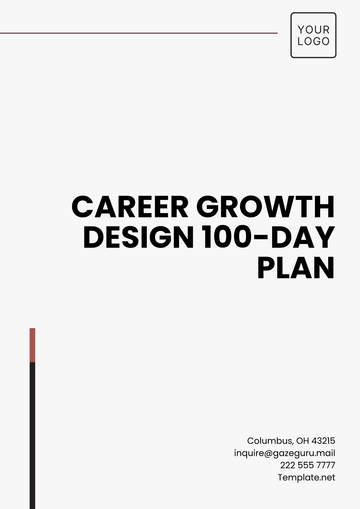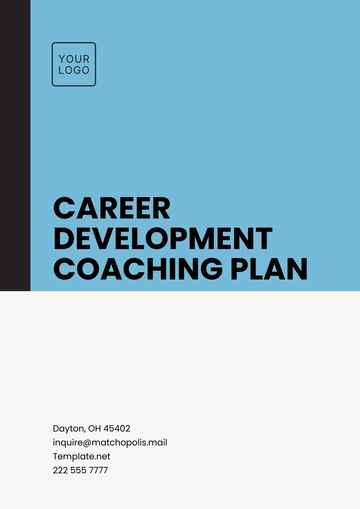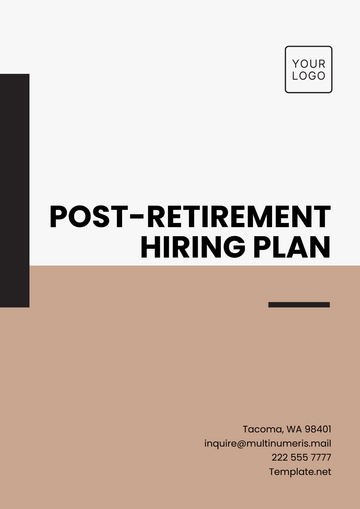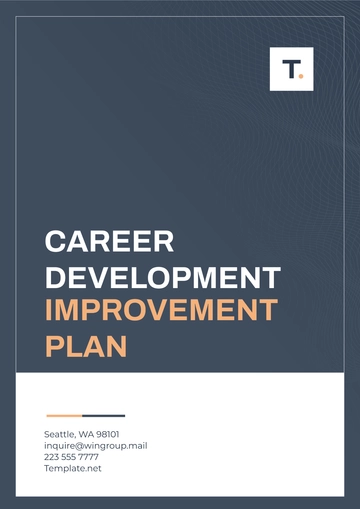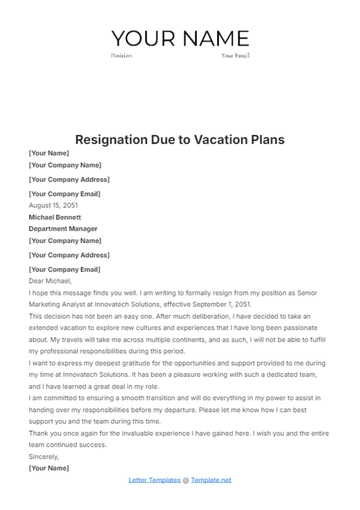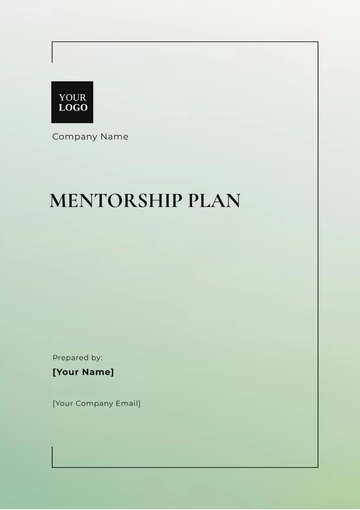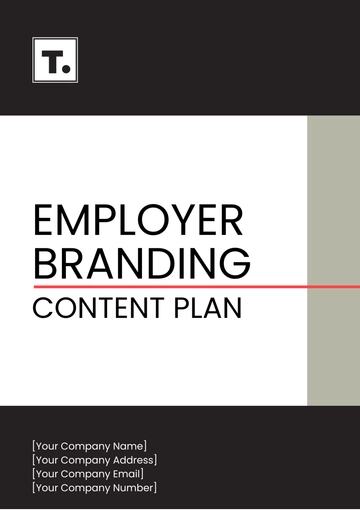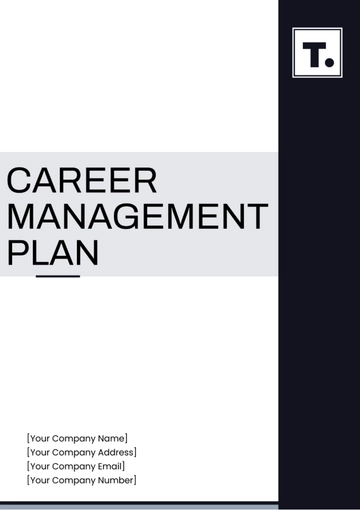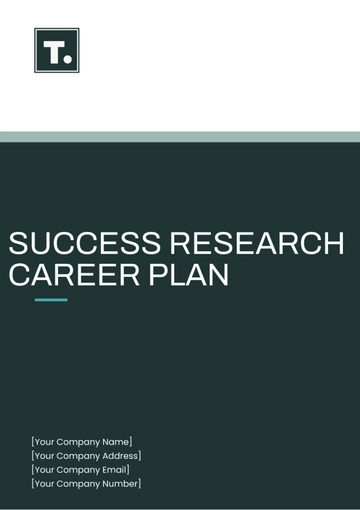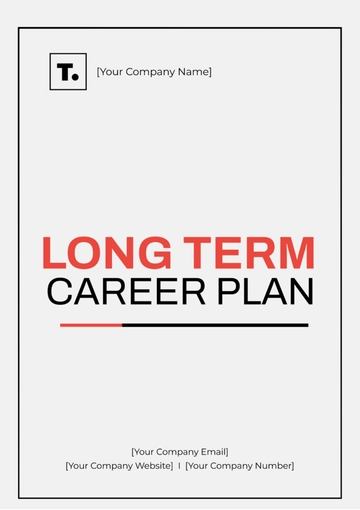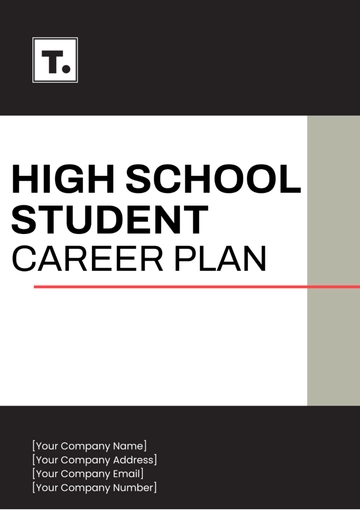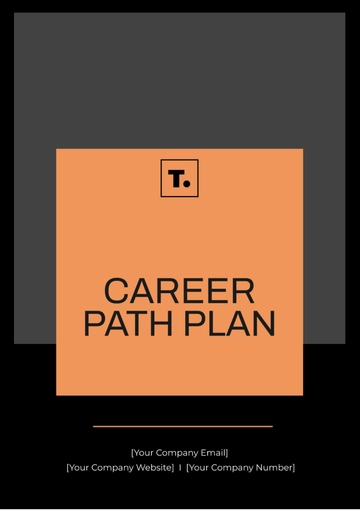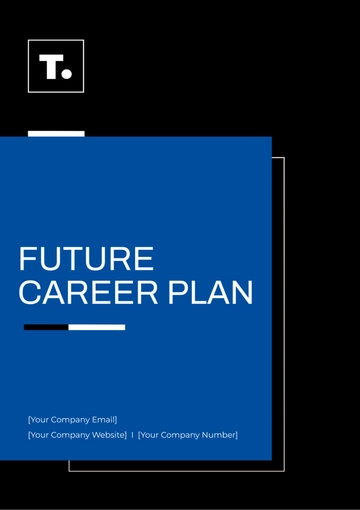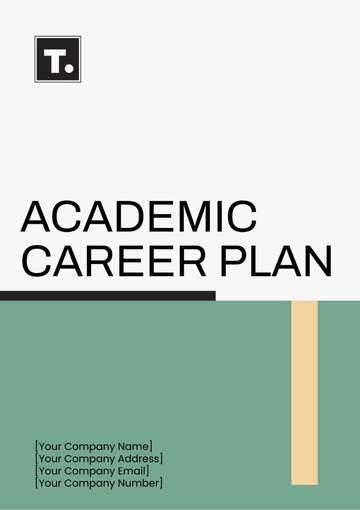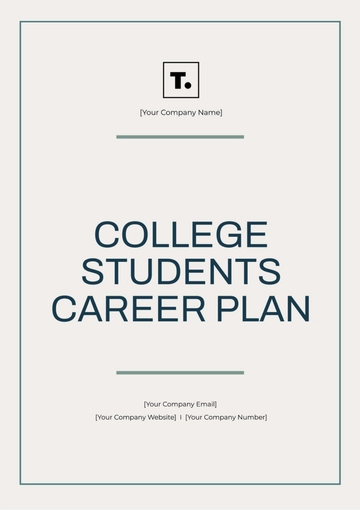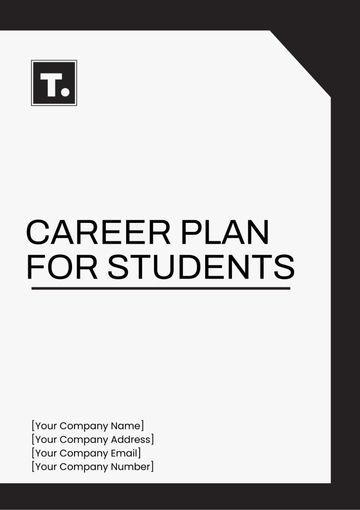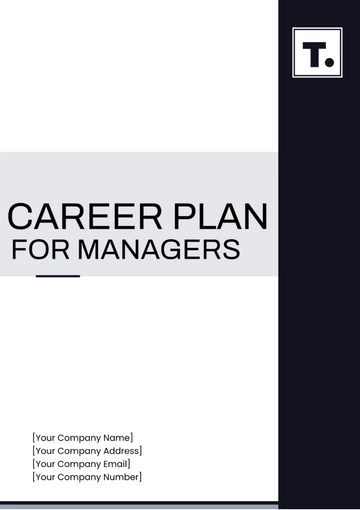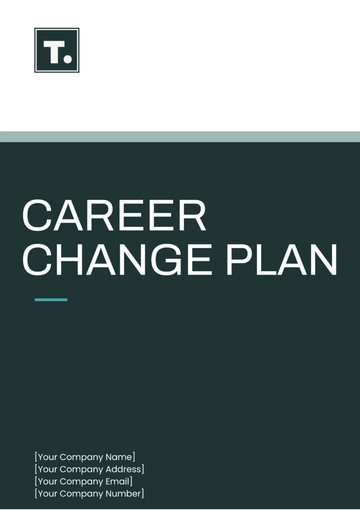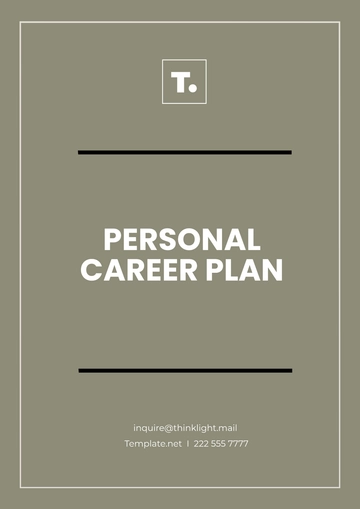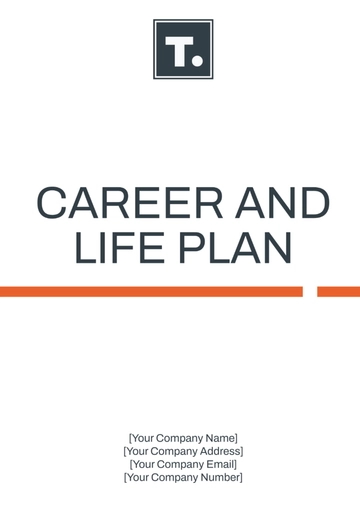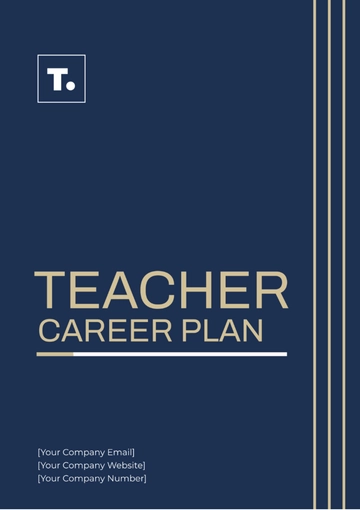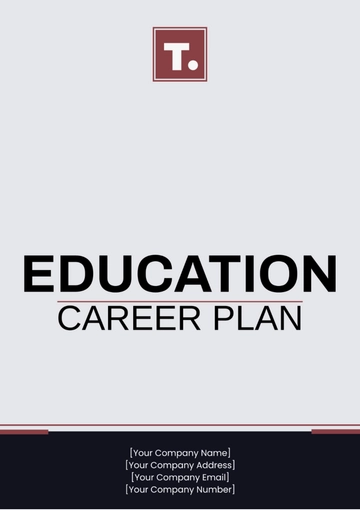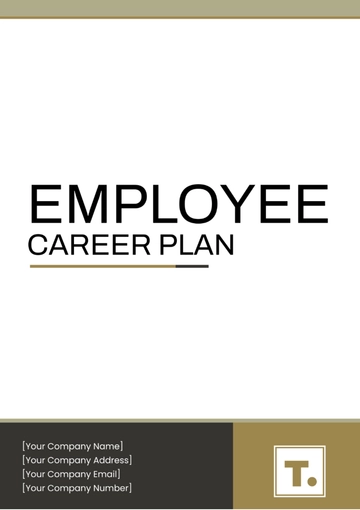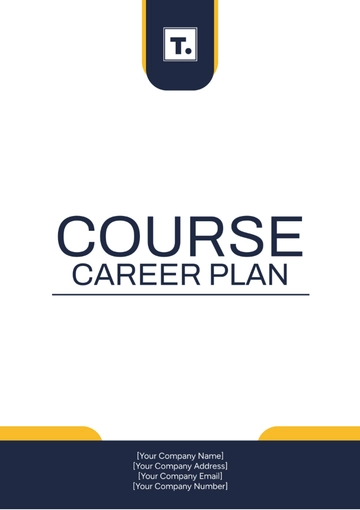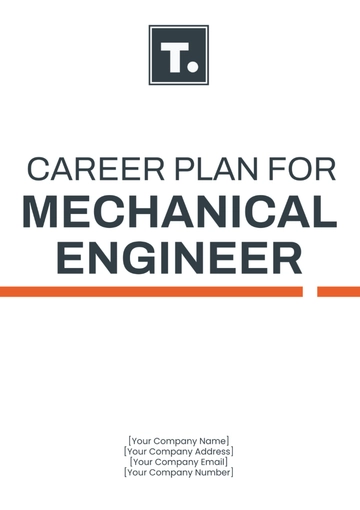Free 10 Year Career Plan
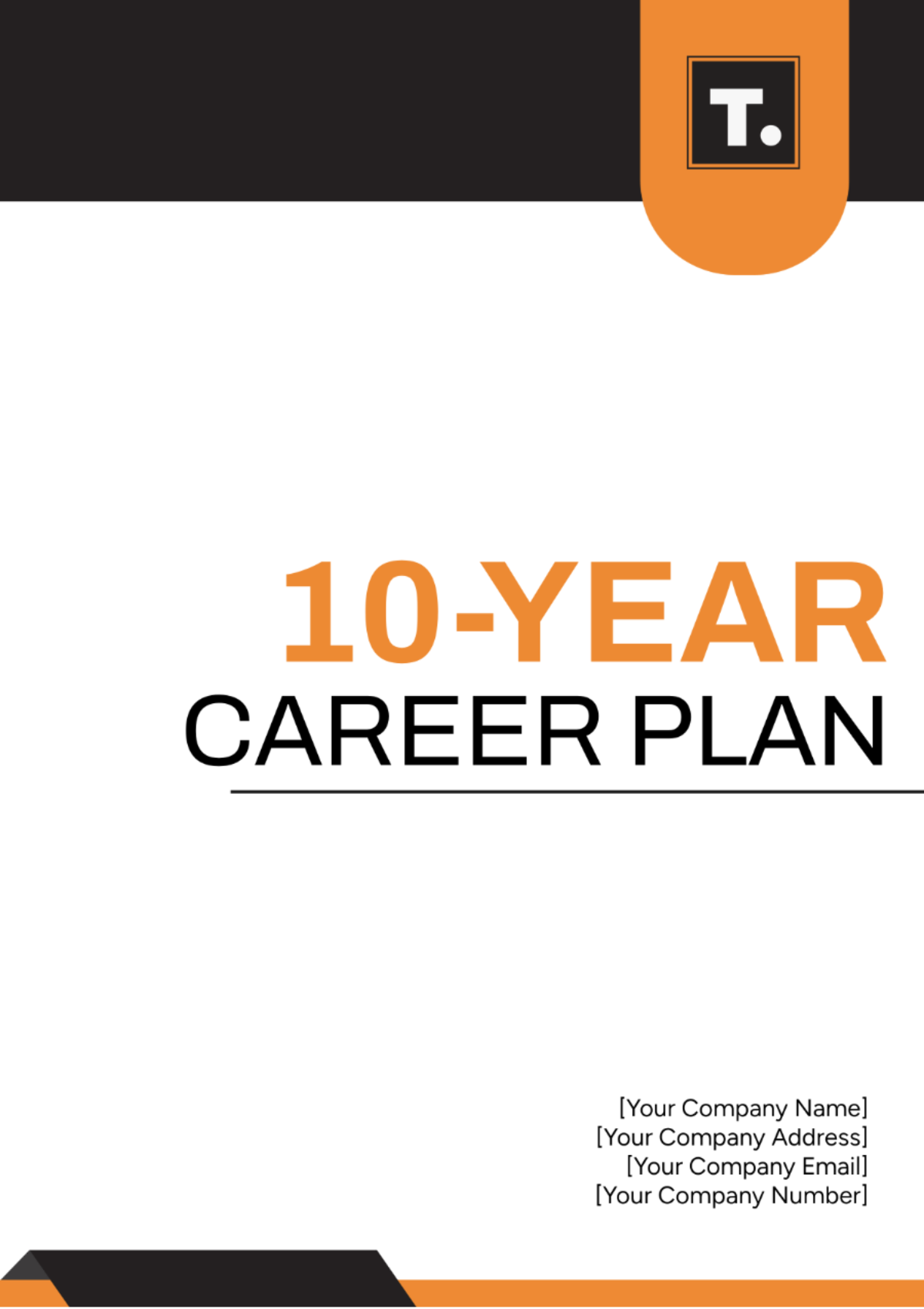
Name: [Your Name]
Email: [Your Company Email]
Company Number: [Your Company Number]
Company Address: [Your Company Address]
Company Email: [Your Company Email]
I. Introduction
A comprehensive 10-year career plan goes a long way in ensuring professional growth and personal satisfaction. This template provides a structured pathway to set actions and achieve career goals.
II. Career Mission Statement
Career Mission: "To leverage strong analytical skills, a strategic mindset, and effective communication abilities to achieve long-term career goals in project management and make a meaningful impact at leading technology companies in the software development industry."
III. Yearly Goals and Milestones
The table below outlines the specific, measurable, achievable, relevant, and time-bound (SMART) goals and milestones for the next ten years.
Year | Goals | Milestones | Target Date |
|---|---|---|---|
2050 | Obtain Professional Certification | Complete specific certification program | June 2050 |
2051 | Gain Managerial Experience | Lead a team project | December 2051 |
2052 | Achieve Position of Job Title | Secure promotion within the company | August 2052 |
2053 | Expand Professional Network | Attend 3 industry conferences | December 2053 |
2054 | Initiate a Major Project | Launch specific project or initiative | March 2054 |
2055 | Receive Industry Recognition | Be a speaker at a major conference | September 2055 |
2056 | Mentorship | Mentor 2 junior employees | December 2056 |
2057 | Take a Sabbatical | Travel and study for personal development | June 2057 |
2058 | Publish a Paper/Book | Author a paper/book on a specific topic | October 2058 |
2059 | Transition to Executive Role | Secure a high-level executive position | December 2059 |
IV. Personal Development Plan
A. Skills Development
Short-term skills:
Attend workshops on project management.
Complete an online course on data analysis.
Long-term skills:
Enroll in a master's program in computer science.
Gain proficiency in artificial intelligence and machine learning.
B. Networking Strategy
Join professional associations related to software engineering.
Participate actively in LinkedIn groups and industry-specific forums.
Schedule at least two informational interviews quarterly with senior software engineers or technology executives.
V. Professional Experience Timeline
Below is a timeline of the anticipated professional experience over the decade.
Year | Position | Responsibilities |
|---|---|---|
2050 | Junior Engineer | Project management, client liaison |
2051 | Team Leader | Lead a team, oversee project completion |
2052 | Manager | Departmental management, budget oversight |
2053 | Senior Manager | Strategy formulation, executive decision-making |
2054 | Director | Organizational leadership, stakeholder engagement |
2055-2059 | Vice President/Executive Role | High-level strategic planning, organizational growth |
VI. Action Steps
Year 1-2: Focus on acquiring key certifications and initial managerial experiences. Build foundational skills.
Year 3-5: Develop leadership abilities by leading projects and managing teams. Seek opportunities for public speaking and attending seminars.
Year 6-8: Deepen industry engagement through mentorship and significant project initiatives. Publish work and gain visibility.
Year 9-10: Prepare for transition to executive roles. Identify and apply for suitable executive positions within or outside the current organization.
VII. Review and Adjustments
A. Semi-Annual Reviews
Conduct reviews every six months to:
Evaluate progress towards goals and milestones.
Identify any changes required in the action plan.
Adjust timelines if necessary to stay on track.
B. Notes and Reflections
Always seek feedback from mentors and colleagues.
Document personal reflections and growth along the journey.
Be adaptable to changes in industry dynamics and personal interests.
- 100% Customizable, free editor
- Access 1 Million+ Templates, photo’s & graphics
- Download or share as a template
- Click and replace photos, graphics, text, backgrounds
- Resize, crop, AI write & more
- Access advanced editor
Plan your long-term success with Template.net’s 10 Year Career Plan Template. Editable and customizable in our AI Tool, this template helps you outline your professional goals and strategies over a decade.
You may also like
- Finance Plan
- Construction Plan
- Sales Plan
- Development Plan
- Career Plan
- Budget Plan
- HR Plan
- Education Plan
- Transition Plan
- Work Plan
- Training Plan
- Communication Plan
- Operation Plan
- Health And Safety Plan
- Strategy Plan
- Professional Development Plan
- Advertising Plan
- Risk Management Plan
- Restaurant Plan
- School Plan
- Nursing Home Patient Care Plan
- Nursing Care Plan
- Plan Event
- Startup Plan
- Social Media Plan
- Staffing Plan
- Annual Plan
- Content Plan
- Payment Plan
- Implementation Plan
- Hotel Plan
- Workout Plan
- Accounting Plan
- Campaign Plan
- Essay Plan
- 30 60 90 Day Plan
- Research Plan
- Recruitment Plan
- 90 Day Plan
- Quarterly Plan
- Emergency Plan
- 5 Year Plan
- Gym Plan
- Personal Plan
- IT and Software Plan
- Treatment Plan
- Real Estate Plan
- Law Firm Plan
- Healthcare Plan
- Improvement Plan
- Media Plan
- 5 Year Business Plan
- Learning Plan
- Marketing Campaign Plan
- Travel Agency Plan
- Cleaning Services Plan
- Interior Design Plan
- Performance Plan
- PR Plan
- Birth Plan
- Life Plan
- SEO Plan
- Disaster Recovery Plan
- Continuity Plan
- Launch Plan
- Legal Plan
- Behavior Plan
- Performance Improvement Plan
- Salon Plan
- Security Plan
- Security Management Plan
- Employee Development Plan
- Quality Plan
- Service Improvement Plan
- Growth Plan
- Incident Response Plan
- Basketball Plan
- Emergency Action Plan
- Product Launch Plan
- Spa Plan
- Employee Training Plan
- Data Analysis Plan
- Employee Action Plan
- Territory Plan
- Audit Plan
- Classroom Plan
- Activity Plan
- Parenting Plan
- Care Plan
- Project Execution Plan
- Exercise Plan
- Internship Plan
- Software Development Plan
- Continuous Improvement Plan
- Leave Plan
- 90 Day Sales Plan
- Advertising Agency Plan
- Employee Transition Plan
- Smart Action Plan
- Workplace Safety Plan
- Behavior Change Plan
- Contingency Plan
- Continuity of Operations Plan
- Health Plan
- Quality Control Plan
- Self Plan
- Sports Development Plan
- Change Management Plan
- Ecommerce Plan
- Personal Financial Plan
- Process Improvement Plan
- 30-60-90 Day Sales Plan
- Crisis Management Plan
- Engagement Plan
- Execution Plan
- Pandemic Plan
- Quality Assurance Plan
- Service Continuity Plan
- Agile Project Plan
- Fundraising Plan
- Job Transition Plan
- Asset Maintenance Plan
- Maintenance Plan
- Software Test Plan
- Staff Training and Development Plan
- 3 Year Plan
- Brand Activation Plan
- Release Plan
- Resource Plan
- Risk Mitigation Plan
- Teacher Plan
- 30 60 90 Day Plan for New Manager
- Food Safety Plan
- Food Truck Plan
- Hiring Plan
- Quality Management Plan
- Wellness Plan
- Behavior Intervention Plan
- Bonus Plan
- Investment Plan
- Maternity Leave Plan
- Pandemic Response Plan
- Succession Planning
- Coaching Plan
- Configuration Management Plan
- Remote Work Plan
- Self Care Plan
- Teaching Plan
- 100-Day Plan
- HACCP Plan
- Student Plan
- Sustainability Plan
- 30 60 90 Day Plan for Interview
- Access Plan
- Site Specific Safety Plan
